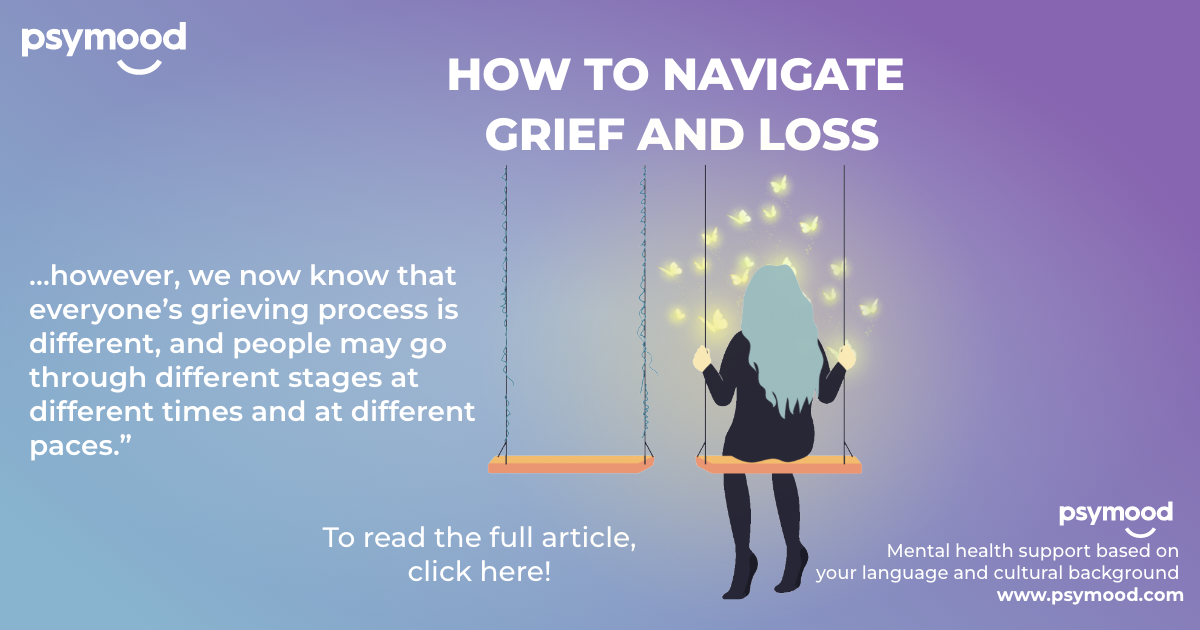How to Navigate Grief and Loss
Grief is the process people go through when someone they love dies. People may experience very strong and overwhelming emotions, which often look different with each person. However, grieving is a natural process and everyone will go through it at some point. What is important to know is that everyone grieves at different paces and goes through the stages of grief differently.
There are many different types of grief, they were once thought to be a linear process, however, we now know that everyone’s grieving process is different, and people may go through different stages at different times and at different paces.
Shock/disbelief: This may be the first stage of grieving, following the death of someone very close to you. You’re likely experiencing a range of emotions such as shock, disbelief, sadness, numbness, anger and fear. It can take time for this stage to pass. People in this stage often seem their normal selves as the news has not yet fully sunk in.
Denial: This is the second stage of grieving. People often try to deny that the person has actually died or is no longer alive. People in this stage may have trouble sleeping or eating because they refuse to believe that their loved one isn’t coming back home soon. During this stage, people may have thoughts such as, “how can they not be here anymore?”. Another symptom of the denial stage is mental fog. The grieving individual may come off as distant, forgetful, sleepy, lacking motivation and emotion, and difficulty with decision making.
Anger: Anger is a common and very normal stage of the grieving process. It is completely normal to feel angry when you lose someone. Many people may hide their anger because they feel that their grieving looks different than others so they feel ashamed. People in this stage may also blame themselves and others for the loss of the loved one, they may be asking themselves, “was there something more that could have been done to prevent it from happening at all? ».
Bargaining: During this stage people try to make promises to themselves or higher beings to make things right again. During this stage it is common to feel guilty about losing the loved one and things that they have said or done leading up to the death. People often feel hopeless and helpless and struggle with the thoughts of “what if”
Depression: This is the stage where emotions from grieving can lead to depression. People who are in the depression stage will often isolate themselves, experience anxiety, and dread. During this stage it is very important to seek professional help to talk about emotions you may be experiencing.
Acceptance: During this stage, people often come to terms with the death of their loved one. Acceptance is realizing that that person is gone and there is nothing that can be changed or done to bring them back and gaining some control over how they will respond. This is also the stage where many people may slip back into previous stages and feel overwhelmed all over again. When the person has accepted their loved one’s death they learn to adapt to their new life without their loved one.
Grief is not linear
You may find that you accepted your loved ones death from the start, but then months later you may find that you are experiencing anger, depression and denial. Furthermore, there is no right amount of time to grieve. Everyone is different, some people have a longer grieving process while others may go through grieving much faster. What is important is to get help with the grieving process if you feel like your emotions are too overwhelming. There are lots of resources available to grieving individuals that you can do on your own or with a mental health professional. Some examples are:
- Try expressing your grief in a creative manner. Either through art, literature, or journaling.
- Keep in touch with loved ones. It is important to have a strong community of family and friends that can get you through the hard times.
- Allow yourself to feel emotions. It is not helpful to bottle things up. If you feel like crying, allow yourself to do just that. If you feel anger, let it out in a safe environment.
- Give yourself time to heal. Do not rush through the grieving process. Allow yourself to encounter all the emotions you need to to heal.
- Remember that what you are going through is normal.
- Try seeking help from professionals. There are grieving counsellors available to help you work through all the new emotions you are feeling.
PsyMood is a digital tool designed to help you find the support you need in the language that you are most comfortable with. PsyMood considers cultural background, geographical location, interests, and personal needs, amongst other factors, to pair you with service providers for either online or in-person therapy sessions.


.png)
.png)
.png)
Recent Comments